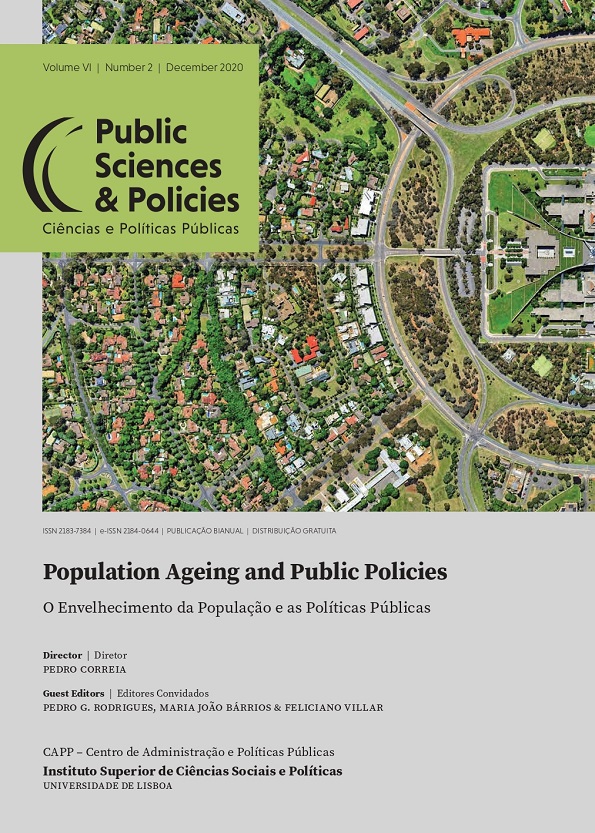The Elderly, Digital Technologies and the Breakdown of Social Ties:
Risks of Exclusion or Lures of Inclusion?
DOI:
https://doi.org/10.33167/2184-0644.CPP2020.VVIN2/pp.79-97Abstract
When you are old in France in 2019, you do not have to be living on the street to be excluded or even feel excluded from a society that is increasingly turning its back on some of its members, because of the digital revolution imposed on citizens. In fact, faced with the excessive digitization advocated by governing bodies and other technocrats, which is rising speedily like a Tsunami, the elderly, often single women and/or widows belonging to underprivileged categories of society, generally with little or no education, and even less awareness in terms of management of minimal IT practices, are already or will soon find themselves on the sidelines of this type of modernization, which has nothing inclusive about it. A few local actors in the social and medico-social field and rights activists are already sounding the alarm and raising the voices of anguish in defense of these elderly people who no longer know how to cope with the dehumanization of public services: “I am 78 years old, I have a very small pension, no computer and anyway, I do not know how to do anything. So, it is annoying now because I have to get help and I do not know people who can help me. I am going to have to go there. It is a long way from home, I have to wait a long time and I am tired. And then you must be sure that there will be someone there!”. Aware of this dynamic of exclusion that is currently taking place and because we have been collecting the signs of this disarray for months, aggravated by isolation and loneliness, our action-research approach aims in the long run to implement counter-actions that aim to offset the harmful effects induced by the digital transition on the social life of the elderly, while seeking to free them from the negative confinement into which their inability to manage this transition by themselves has insidiously led them. It is these changes in the aspects of the most fragile of human existences that are at the heart of our approach as researchers-practitioners, as well as of our actions; acting like a mild buffer against the inhumanity of the system that is inexorably set up when a robot signals to you: “You have exceeded the deadline [note that this word contains the word ‘dead’] for the submission of your file on the lambda portal and therefore the administration can no longer do anything for you.”. There is no doubt that this is an immediate field of action for public policies, particularly in the fight against the digital exclusion of older citizens. For the time being, as always, in France, associations and humanitarian actors compensate for this absence of public authority with their limited means, but such a situation cannot last without in the long term seriously affecting societal balance and the moral principles of social justice, such as access to rights for all.
Downloads
Published
How to Cite
Issue
Section
License

This work is licensed under a Creative Commons Attribution-NonCommercial-NoDerivatives 4.0 International License.



